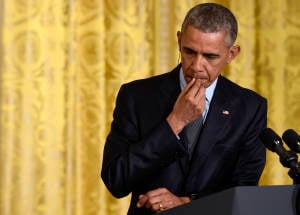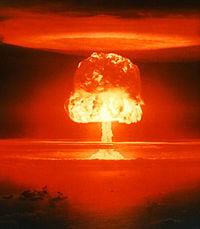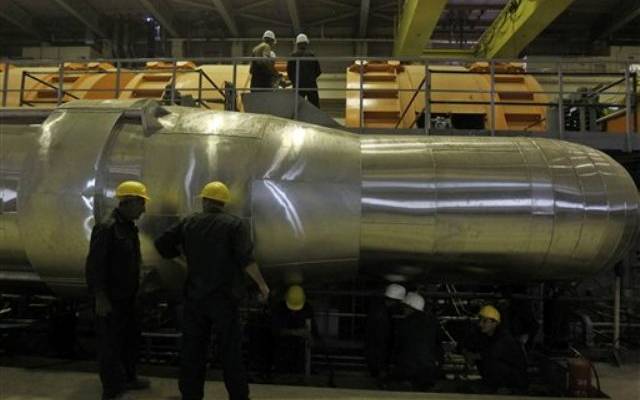International inspectors have confirmed that Iran, rather than adhering to a prior agreement to limit its nuclear stockpile, developed it significantly – all while negotiating with the US and European powers over its nuclear program.
The International Atomic Energy Agency (IAEA) revealed that Tehran’s stockpile of nuclear fuel increased by about 20 percent during the last 18 months of negotiations, the New York Times reports.
This disclosure challenges the Obama administration’s contention that the Iranian program had been “frozen” during that period.
The extent to which Iran’s stockpile has increased was documented in a report issued Friday by the IAEA, the United Nations organization that monitors compliance with nuclear treaties.

IAEA inspectors at the Natanz facility in Iran. (AP/IRNA, Kazem Ghane)
According to the report, the IAEA probe has essentially stalled its multi-year probe of Iran’s past activities, reiterating that more cooperation is needed from Tehran for full clarity on its ongoing program. Without it, the IAEA cannot “conclude that all nuclear material in Iran is in peaceful activities.”
Since negotiations began a year and a half ago, Iran has slowly increased the size of its uranium stockpile, which can fuel either reactors or bombs.
Some Western officials and experts suspect that Iran is increasing its stockpile in case negotiations fail.
“From the US perspective, it’s obviously less than ideal,” Richard M. Nephew, an Iran specialist at Columbia University who worked at the White House and State Department, told the Times. Nephew said the enlarged stockpile is not a deal breaker, however, because Iran could find a way of solving the problem, especially if offered sanctions relief.
Major Challenge for Obama

US President Barack Obama. (AP/Susan Walsh)
The overall increase in Iran’s stockpile will pose a major diplomatic and political challenge for President Barack Obama and Secretary of State John Kerry when they try to sell the deal to Congress. It will be difficult to convince skeptics that Iran will shrink its stockpile by 96 percent in a matter of months after a deal is signed, especially since it has done the opposite until now, the Times explains.
A major element of the deal permits Iran to maintain a stockpile of only 300 kilograms of nuclear fuel, which is less than what would be needed to make a single weapon. This means that in order to comply, Iran would have to rid itself of more than nine tons of its stockpile in a matter of months. The Iranians could ship the fuel out of the country, but they have ruled out that option.
Administration officials said nothing publicly about the IAEA report.
In February, Iranian President Hassan Rouhani stated that Iran does not seek permission from anyone to make scientific and technological progress. He announced that Tehran had accelerated its “peaceful” nuclear activities.
By: United with Israel Staff

Sign the Petition to Stop a Nuclear Iran
The US Congress must ensure that sanctions against Iran remain in force until the nuclear threat is completely eliminated.
I strongly oppose easing sanctions before the nuclear threat from Iran has been eliminated. Allowing Iran to enrich uranium without being subject to 'anytime, anywhere' inspections is extremely dangerous and unacceptable. Iran's nuclear program must be stopped.
See our Privacy PolicyDo You Love Israel? Make a Donation - Show Your Support!
Donate to vital charities that help protect Israeli citizens and inspire millions around the world to support Israel too!
Now more than ever, Israel needs your help to fight and win the war -- including on the battlefield of public opinion.
Antisemitism, anti-Israel bias and boycotts are out of control. Israel's enemies are inciting terror and violence against innocent Israelis and Jews around the world. Help us fight back!























